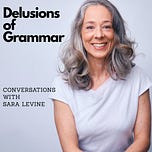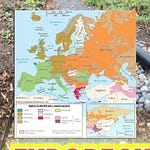This week I’m sharing a conversation I had with the writer Kyle Beachy. Kyle is the author of the novel The Slide and the memoir-in-essays The Most Fun Thing: Dispatches from a Skateboard Life.
I thought I wanted to talk to Kyle because he’s teaching a class on AI and the sentence. But you know how good conversations go. AI ended up being the launch pad for a rangy and giddy conversation about syntax, performance, ambition, readership, skate culture, and what William Gass ate for lunch.
Recently someone asked me for a manuscript consultant, and I gave them Kyle Beachy’s name. Kyle can look at a story or an argument and nail it: tell you how it’s shaped, where it turns, where it sings, what are its blind spots or ambiguities. A voracious and big-hearted reader, he talks shrewdly about big ideas and little choices. Most important, he’s kind.
Kyle is teaching at the Iowa Summer Writing Festival this July. Find him on LinkedIn if you’re thinking about a manuscript consultation or want to learn more about his upcoming classes.
Stuff We Casually Mention Which It May Be Helpful to Know
Chris: My husband who hates Instagram but fell headlong into Kyle Beachy’s skateboarding reels.
LLM: a large language model trained on a vast amount of text in order to generate syntax. LLMs are incapable of judging the accuracy of the text they produce. Also, they inherit all the inaccuracies and biases of the data they’re trained in.
Mao II. Don DeLillo’s 1992 novel about writers and terrorists. Kyle uses this text to elucidate the relationship between writing and thinking.
Jim McManus. If you missed my conversation with writer and teacher James McManus, you can listen to it here.
Borges. Argentine writer J.L. Borges (1899-1986) wrote a piece called “In the Analytical Language of John Wilkins” which contains a fictitious taxonomy of animals.
Sei Shonagon. A Japanese courtier to Empress Consort Teishi of the Heian period (794–1185). Her diary The Pillow Book contains many wonderful lists. Sample titles: “Delightful Things,” “Surprising and Distressing Things,” “Things that Should be Short.”
Stanley Fish, How to Write a Sentence And How to Read One.
“Your video from the florist.” In our discussion of hypotaxis and parataxis, Kyle mentions a video where I talk about conjunctions, without using any fancy terminology. See it here.
“The Bill Gass essay.” William Gass was a fiction writer, essayist, and professor of philosophy at Washington University in St. Louis, Missouri, where Kyle once waited tables. Gass may not have left Kyle a big tip at the cafe, but nobody is more illuminating on the subject of syntax. If you’re interested, I recommend starting with his essay “The Music of Prose.”
“Eula was talking about this as well.” Kyle mentions my recent interview with essayist Eula Biss in a sauna. You can listen to that hot little conversation about the role of lyricism in nonfiction here.
“The Sontag thing.” Susan Sontag’s essay “On Style” can be found in Against Interpretation and Other Essays.
Stephen Sondheim. “Newspaper reviewers in particular have limited time to think about what they’ve witnessed, to consider the work at hand. They are of necessity drive-by shooters.” You can read the full text “Critics and Their Uses” in the composer-lyricist’s book Look, I Made a Hat.
If you want to learn more about writing and AI, I recommend John Warner’s book More Than Words: How to Think About Writing in the Age of AI (Basic Books, 2025).
Delusions of Grammar is now on Spotify, if that’s where you prefer to listen.
Thanks for tuning in!








